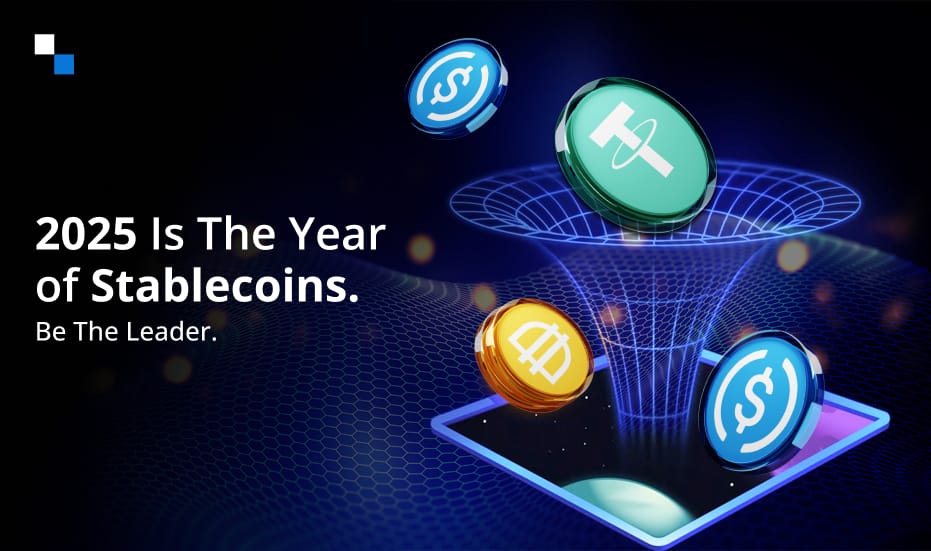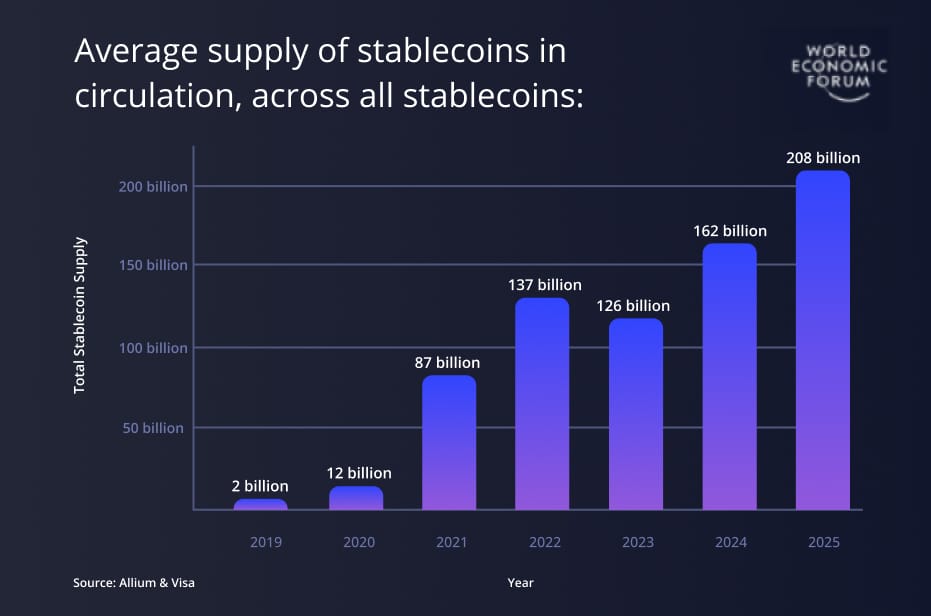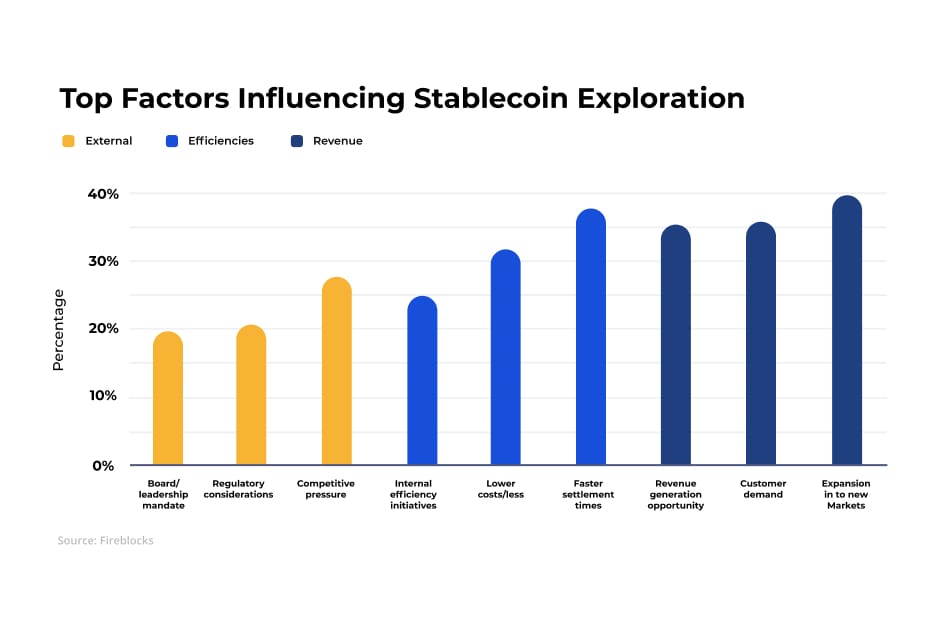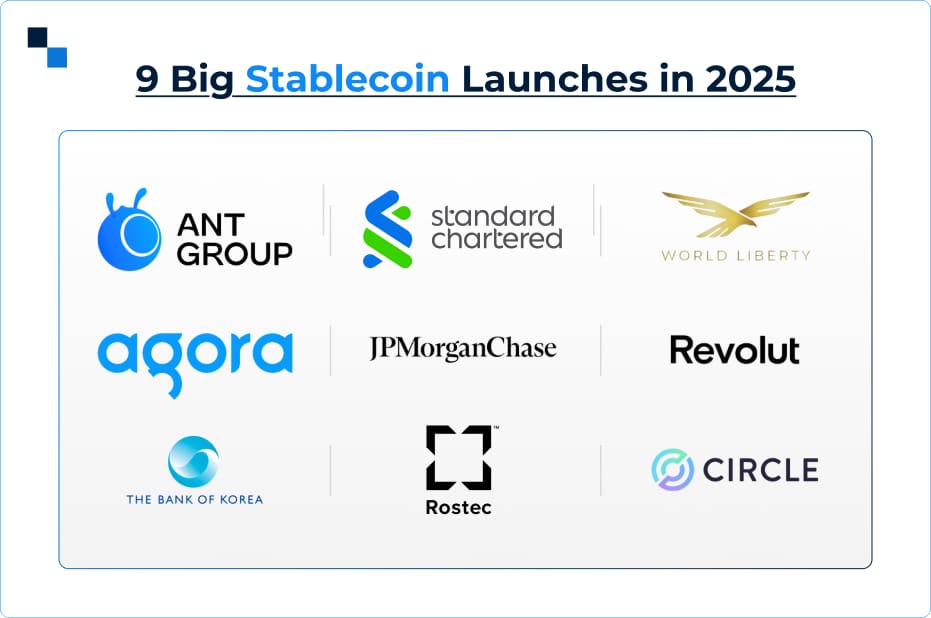views

Think stablecoins are just a niche idea that won’t last? You might be surprised how quickly they’re becoming essential to modern finance.
Back in 2019, the total supply of stablecoins was barely $2 billion, an interesting footnote in the broader digital asset story. Today, we’re on track to surpass $208 billion by 2025, as the world’s biggest banks, fintech giants, and Web3 innovators rewire how money moves across borders. Why this explosive growth? Because traditional payment rails are too slow, too expensive, and too fragmented to meet modern business demands.

That shift raises an urgent question for every forward-thinking organization:
How do you launch a stablecoin that’s secure, compliant, and built to scale? This guide walks you step by step through what it takes to create a trusted digital currency, from choosing the right blockchain and structuring reserves to navigating the complex regulations that will define the next era of programmable money.
- What is a Stablecoin?
- Why Stablecoin Development is Surging Worldwide?
- How To Launch a Stablecoin in 2025?
- Who’s Powering the Stablecoin Boom? Key Players to Watch
- Stablecoin Development Regulations 2025: How to Stay Compliant Globally?
- How Much Does Stablecoin Development Cost?
- Why Choosing the Right Stablecoin Development Company Matters More Than Ever
- Ready to Lead? Take the First Step Toward Your Stablecoin
What is a Stablecoin?
A stablecoin is a digital currency designed to hold a steady value over time. Unlike other cryptocurrencies that fluctuate in price, stablecoins are tied to a stable asset, such as the US dollar, euro, or gold. This makes them a popular choice for payments, savings, and cross-border transfers.

Many businesses and investors are turning to stablecoin development to create secure digital assets for their platforms. Some stablecoins are backed by real money held in reserves, while others utilize crypto collateral or smart algorithms to maintain consistent prices. If you want to learn how to launch a stablecoin, you’ll need to understand which model works best for your goals. You can build a solution that meets compliance rules and earns user trust with help from a trusted stablecoin development company.
Why Stablecoin Development is Surging Worldwide?
Traditional financial systems are slow, costly, and often outdated. That is exactly why stablecoin development is gaining serious momentum across the globe. Companies, banks, and fintech platforms see stablecoins as a faster, more reliable way to move value and unlock new revenue streams.
Here is what is driving the surge:
- Faster Settlement Times: Nobody wants to wait days for payments when stablecoins can settle transactions in seconds.
- Lower Costs and Fees: Reducing processing expenses can improve margins across the board.
- Regulatory Momentum: Clearer rules in markets like the EU and Asia are giving leaders more confidence to innovate.
- Revenue and Market Expansion: Many organizations see stablecoins as a path to reach new customers and unlock fresh revenue opportunities.
- Customer Demand: Growing user expectations are pushing companies to modernize payment systems.
The chart below from Fireblocks shows the top reasons firms are exploring stablecoins today, from efficiency gains to staying ahead of competitors:

If you are planning to enter this market, partnering with an experienced stablecoin development services provider will help you create a secure, compliant solution that can grow with your business.
How To Launch a Stablecoin in 2025?
Building a stablecoin in 2025 takes clear planning, the right technology, and strong compliance. Here are five essential steps to help you get started:
- Define Your Model and Purpose: The first step in stablecoin development is choosing your structure. Decide if your stablecoin will be fiat-backed, crypto-collateralized, or algorithmic. Be clear about your goals, whether you want to support cross-border payments or offer a new DeFi solution.
- Select the Right Blockchain: Choosing the right network is critical for performance and user trust. Leading platforms like Ethereum and Solana are popular for stablecoin development services because they offer secure smart contracts and proven scalability. Make sure your blockchain can integrate with payment networks and exchanges.
- Establish Reserves and Custody: To build credibility, your reserves must be transparent and secure. A reliable stablecoin development company can help you set up regulated custody solutions and arrange regular third-party audits. This step reassures users that your token is fully backed.
- Develop Smart Contracts and Infrastructure: Work with experts who understand how to launch a stablecoin safely and efficiently. Your smart contracts should cover minting, burning, and transfers while integrating trusted price oracles. Rigorous testing protects against vulnerabilities and maintains stability.
- Secure Regulatory Approval: No stablecoin project is complete without compliance. Before you go live, ensure you meet all local requirements under frameworks like MiCA or U.S. money service business laws. Strong regulatory alignment positions your stablecoin development for long-term success and adoption.
Who’s Powering the Stablecoin Boom? Key Players to Watch
The stablecoin ecosystem in 2025 is no longer just a handful of crypto startups experimenting with new models. Today, some of the world’s largest banks, fintech innovators, and technology companies are driving the surge in adoption through advanced stablecoin development services and strategic partnerships. These efforts are turning stablecoins into essential tools for payments, settlements, and cross-border finance.

- JPMorgan Chase: JPMorgan Chase is expanding its JPMD Coin stablecoin to move beyond internal settlement for institutional clients.
- Standard Chartered: Standard Chartered, through SC Ventures, is building a stablecoin platform focused on trade finance and B2B transactions.
- Ant Group / Alipay: Ant Group is working on a multi-currency stablecoin to boost cross-border e-commerce payments.
- Bank of Korea: The Bank of Korea has paused its central bank digital currency project to focus on developing a won-backed stablecoin.
- World Liberty Financial: World Liberty Financial is launching USD1, a fully backed USD stablecoin supported by U.S. Treasuries and insured deposits.
- Revolut: Revolut is preparing to launch a stablecoin to make everyday payments faster and more predictable for retai



Comments
0 comment